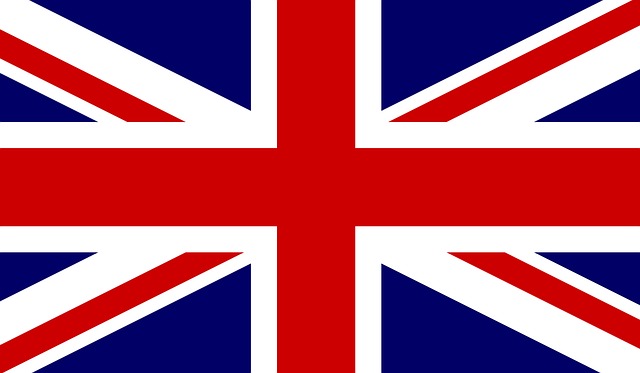Forum Categories › VAT ADMINISTRATION ISSUES › Various VAT cases about holding companies
- This topic is empty.
-
AuthorPosts
-
17 December 2018 at 14:51 #55573
vatconsultant
MemberHMRC’s eight basic conditions that must be satisfied for a business to reclaim their input tax:
1. a SUPPLY of goods or services has been made;
2. the supply was made to a TAXABLE PERSON;
3. the supply must have been made for a BUSINESS PURPOSE;
4. the supply was made to the PERSON CLAIMING THE DEDUCTION;
5. the recipient INTENDS to use the goods or services for the purposes of their business;
6. the goods or services supplies must have a DIRECT AND IMMEDIATE LINK to a taxable transaction; and
7. input tax must have been CORRECTLY CHARGED.
8. HMRC will only repay input VAT to a taxpayer if it holds a VALID VAT INVOICE, or acceptable alternative documentary evidence.Most relevant case law includes the following:
1.Polysar (Case C-60/90): Polysar held shares in various overseas companies and received dividends from them and paid out dividends to its own holding company. Polysar attempted to recover VAT on certain costs. Conclusion: Passive holding companies are not considered to be in business therefore cannot avail of VAT recovery on costs.The CJEU held that the mere acquisition and holding of shares was not an economic activity.
2. Cibo (Case C-16/00 ): Cibo derived income from those companies as dividends and from charges made in respect of taxable management services provided by it to the companies. Conclusion: A Holding Company that actively manages a target company in which it owns shares can recover VAT incurred on acquisition costs.
3. Kretztechnik (Case C-465/03): A company based in Austria that issued new shares. The company reclaimed the input tax on the related costs. Conclusion: Issue of shares is not a vat supply and if costs are not related to a specific economic activity VAT can be recovered as a general overhead provided the costs relate to taxable supplies.HM Revenue & Customs issued Business Brief 12/05 and 21/05 following this decision.
4. BAA Ltd: A special purpose vehicle company, ADIL, was set up to carry out a bid for BAA. ADIL never made any supplies in its own right, nor was it independently VAT-registered; once its bid succeeded, it joined the existing BAA group registration and claimed VAT on the bid costs (over £6m) on the BAA group VAT return. Conclusion: ADIL never made taxable supplies in its own right and the costs on which it claimed input tax were not linked to any output made by the group. They were linked only to its acquisition of the group and were incurred before it was a member of that group and hence not recoverable.
5. Heating Plumbing Supplies: similarly to the BAA case, a special purpose vehicle was set up to effect a buy-out of the appellant by its management and staff. In advance of the buy-out, a new VAT group which included the new entity. Professional fees were incurred after joining the VAT group and were allowed to be recovered. Conclusion: FTT found as a fact that the purpose of the management-led buyout was to motivate and incentivise staff by giving them a stake in the business, with a view to improving its growth and efficiency. It held that the facts were distinguishable from those which involved a “third party takeover” in BAA case.
6. Securenta (Case C-437/06): The acquisition costs of a holding company should be split between its taxable management service and its non-taxable holding company function.
7. AB SKF (Case C-29/08): VAT on acquisition costs can be recovered if they are included in the price of the vatable output transactions.
8. Ryanair (Irish High Court): The question was whether the costs incurred on the attempted Aer Lingus takeover could be recovered by Ryanair. CJEU ruled that VAT on consultancy fees relating to a failed takeover bid was recoverable as Ryanair intended to make taxable management services to the target.
9. African Consolidated Resources: The company provided loans to its African mining subsidiaries and interest chargeable & repayable on demand. In addition low fixed annual management fees were charged based on what the subs could afford to pay rather than by reference to the value of the services provided. No payments had been demanded in respect of the loans, interest or management fees. Conclusion: the courts found that because the fees for the management services were set at a level that reflected the subsidiary’s ability to pay rather than the cost of the services, the necessary economic link could not be established.
10. Norseman Gold PLC: The company argued that it provided management services to the subsidiaries but there was no point raising invoices until the subsidiaries were consistently generating profits. Conclusion: the mutual understanding of not charging evidence weaken the direct and immediate link required to claim input tax.
11. Larentia +Minerva: These entities are incorporated in Germany and have subsidiaries that are Limited partnerships. They hold shares in the subsidiaries and charge them for management services. The German tax authority considered them to be engaged in both business and non-business activities and sought an apportionment of any VAT incurred on capital costs. Conclusion: cJEU concluded that VAT incurred must be regarded as belonging to the holding company’s general expenditure and therefore deductible as input VAT (subject to any partial exemption already in place).
IMPORTANT!!!!!!!!!!!!!!!!!!!!!!!!!!!!!!
SALE OF SHARES IS GENERALLY EXEMPT BUT THE ISSUE OF SHARES IS NOT A VAT SUPPLY AT ALL AND HENCE COSTS CAN BE CONSIDERED OVERHEAD
-
AuthorPosts
- You must be logged in to reply to this topic.
